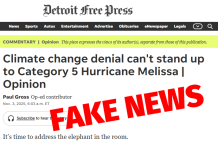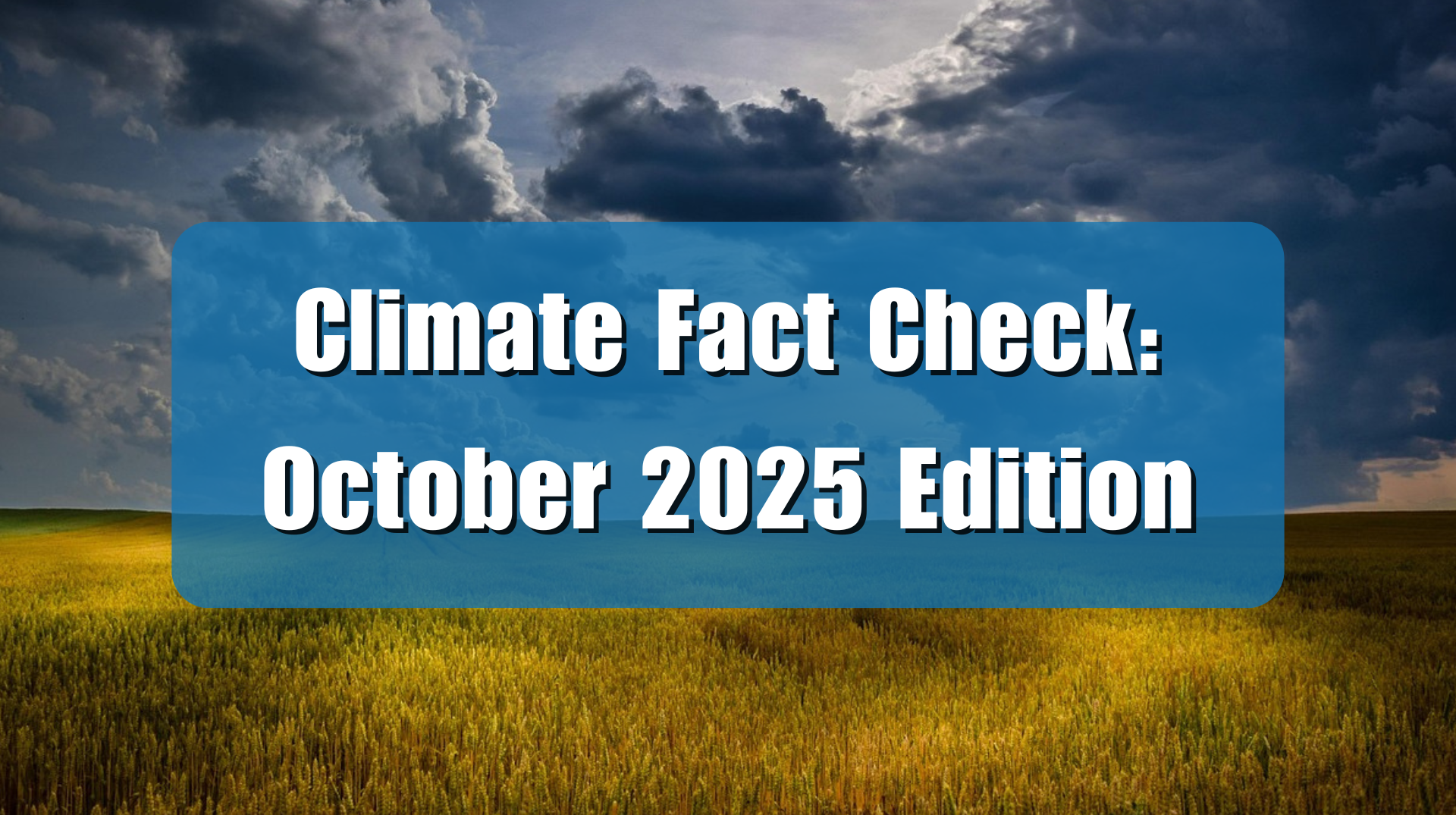A recent news post at the Harvard School of Public Health “Understanding the mental health consequences of chronic climate change,” claims that climate change, which researchers dub “chronic,” is leading to negative mental health consequences for people around the world. Researchers claim that long-term, gradual changes to the environment are also traumatic. This is false. While natural disasters can traumatize those who survive them, individual weather events can’t be causally linked to climate change, and since environmental changes have always occurred throughout human history, Harvard’s new hypothesis is worthless or empty. In reality, and especially in the Western world, it is frantic and alarmist media coverage that leads to self-reporting of climate change related anxiety.
In answer to a question about gaps in what is known about how climate change impacts mental health, researcher and assistant professor of social and behavioral sciences at Harvard T.H. Chan School of Public Health Christy Denckla said that we “already know a lot about the mental health effects of climate-related disasters like hurricanes and wildfires.”
Indeed, Climate Realism has on several occasions, here, here, and here, for instance, refuted claims that suggest climate change itself, through the impact of natural disasters, is causing anxiety and other mental health problems. The reality in those cases is that while suffering through an extreme weather event, during which lives and property may be lost, definitely can be traumatic, no one would blame that trauma on “climate change” had the media not told them the weather event was caused by it.
In one particularly egregious example, several news outlets back in 2023 reported on a study that analyzed individuals who survived the 2018 wildfire in Paradise, California, and found widespread diagnoses of PTSD, anxiety, and depression. The researchers blamed those mental health problems on climate change. However climate change did not cause the fire in Paradise, poor maintenance of power lines did. Nor has the modest warming of the past century or so caused any statistically significant change in the number or severity of wildfires on Earth. In fact, data from NASA suggests that the amount of land lost to wildfires each year has declined substantially.
The same goes for hurricanes – there is no statistically significant trend in the number or severity of tropical cyclones and hurricanes.
This new research Harvard is reporting on further expands upon these previously debunked claims into even more nebulous territory. In addition to blaming mental health issues on particular weather events, Denckla goes on to explain that “the most urgent research priority is to understand the mechanisms through which slower-moving aspects of climate change such as temperature variability, ecosystem shifts, and changes in precipitation affect mental health.”
She goes on to say that the effects of climate change disproportionately impact particular populations, like “adolescents and children, indigenous communities, displaced migrants, economically marginalized groups, and nations and regions on the frontline of the climate crisis, such as Africa and countries most vulnerable to climate extremes.”
It is true that the poor and people in the third world are more impacted by natural disasters, in large part because they do not have as storm-resilient infrastructure as wealthier parts of the world do, and have less access to good medical care, and the food abundance delivered by modern agricultural systems built on fossil fuels. Meteorological drought, for example, in a small sub-Saharan tribal community without water storage and transport will produce more severe misery and harm than a similar drought would for the people of a developed city like Phoenix, Arizona.
Denckla seems to suggest that modern warming is a novel situation that uniquely impacts human mental health, however history clearly demonstrates that human civilizations have always suffered from natural disasters and slowly changing ecosystems and landscapes. Nature is never in stasis.
What is certain, however, is that climate change alarmism is the overwhelming narrative consensus pushed by mainstream media and activists. Climate Realism responds to disinformation every day from the media, and despite occasionally acknowledging that the “catastrophe” angle taken on climate-related issues is going too far, they continue to double down. It would be surprising if the constant battering by false and inflammatory climate news did not negatively impact the mental health of media besotted adults and children, alike. The ratcheting up of hysterical coverage, misleadingly linking damage from natural disasters to climate change, while harping on the fact no major climate policies are being passed, is leading to depression and anxiety about the future. It would serve the mental health of the general public better if Harvard devoted some resources to an alternative study, about how fearmongering by the media leads to mental health issues, and better still if its scholars began following and promoting the data which shows that no climate crisis is in the offing.
























These pinheads at Harvard have the gall to blame the climate for their own lack of honest reporting! They are always creating chaos and crises to promote their agenda! Classic example of creating a problem so they can solve it with their idiotic policies and stupidity! Best thing is to ignore these climate hoaxers if they are unable to show any proof of what the snake oil they’re selling! These charlatans are like the carnival clowns 🤡 at the circus and games of chance to to win a worthless prize 🏆! Take your junk science and go for a long walk on a short plank!